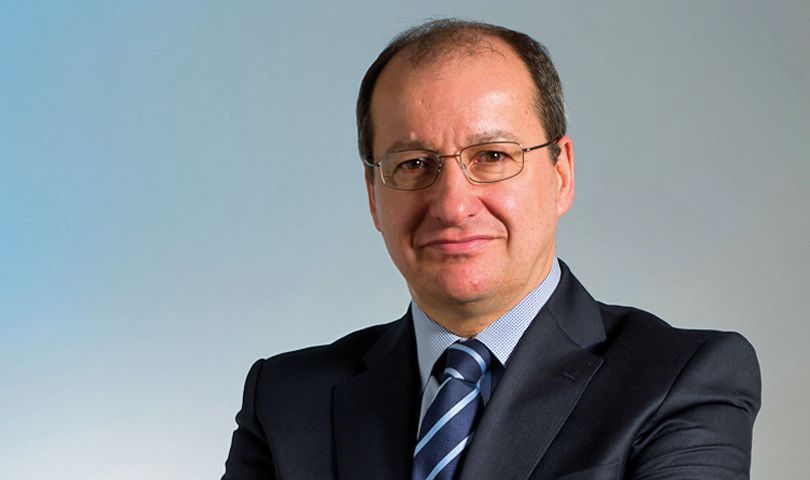Although the economy has turned a corner, the grocery sector has not seen the same level of recovery, as shopping bills are viewed as the one item that consumers have control over.
“Shoppers have remained cautious, particularly in light of new indirect taxes, which impacted spending,” says Chris Martin, CEO of Musgrave Group. “Despite the challenging circumstances our main retail brands in Ireland had satisfactory performances in 2014.”
Retail is well placed to support entrepreneurial startups as, unlike other countries, Ireland has retained the independent retailer who sources locally, spends locally and invests back into their community. “Musgrave and our retailers in SuperValu, Centra and Daybreak are at the forefront of this community-based retail model,” says Martin.
“In fact, Musgrave in Ireland has been keeping it local ever since our founders, Stuart and Thomas, started what was then a small business on Cork’s North Main Street, rowing out to sell butter and sugar to ships in Cork harbour, 140 years ago.”
Entrepreneurial
With an entrepreneurial ethos underpinning Musgrave, the group has been reaching out to assist food startups. “The Food Academy programme is a collaboration between SuperValu, Bord Bia and Local Enterprise Offices, where we bring local food startups to market. Two hundred small food producers will secure retail listings worth €10m with SuperValu through the programme in 2015,” says Martin.
“Almost 85% of our Food Academy participants expect to employ new staff over the next 12 months, and almost half expect sales to increase by 50% or more,” he adds. “This programme is helping to create new jobs and business opportunities nationwide and particularly in rural Ireland.”
A UCD study published last year showed that Ireland has the fifth most innovative agri-food sector in Europe. “We can be number one,” says Martin. “To do this, we need a food sector that is both the showcase of everything we export, as well as the nursery for entrepreneurial food startups.”
According to Martin, SuperValu recorded retail sales of €2.58bn in 2014. “This represents a new milestone for the brand, following the addition of 24 former Superquinn stores to the business in February 2014,” he says. “At the end of the year, SuperValu held approximately 25% market share and served over 2.6 million customers every week.
“SuperValu achieved this by focusing on three key areas – providing the best quality Irish food to our customers; offering unrivalled expertise through our people like our butchers and bakers; and supporting communities across the country through a variety of charitable causes, initiatives like TidyTowns, as well as putting money back into the local economy due to our independent retail model.”
Musgrave Group’s symbol group, Centra, cemented its position as Ireland’s number one convenience brand with retail sales of over €1.5bn in 2014, according to Martin.
“Centra’s growth was underpinned by increased own-brand sales, the introduction of its all-day fresh food range, innovative products and services and delivering great value across all categories. Sales of the Centra own-brand range rose by 14%, reflecting the trend of consumers switching to own-brand products in recent years.
“These milestones are testament to the fantastic work of our retail partners across the country. Local ownership is one of our unique selling points; because our stores are operated by people from the local community, the store owner knows his or her customers and what they want.
“For example, as stores owners can source directly from local suppliers, you will find products on our shelves that you simply cannot buy in any of the other grocery retailers.”
Unequal
In Martin’s view, while it is clear that there is an economic recovery underway, it is still in its infancy. “It is important to note the economic recovery is not evident in many rural areas, which are lagging behind Dublin,” says Martin.
“Consumer confidence has risen in the wake of rising employment, with increased disposable income evident across most sectors. The Central Bank is predicting a 2.2% increase in personal spending in 2015. While this is a positive, it should be noted that this is a marginal increase.”
Martin adds that if startups are to be successful in export markets, they first need to be successful at home. “Research from the Central Bank shows that startups account for two-thirds of all new jobs created in Ireland, while the National Policy Statement on Entrepreneurship shows that businesses that had started in the five years up to 2011 employed 93,000 people.
“This rate of job growth came during a very challenging period economically, underlining the innovate nature of these businesses. During the same period, longer-established enterprises lost 400,000 jobs.
“All of the building blocks are in place to support an increased level of entrepreneurship. A comprehensive strategy set out in the Action Plan for Jobs, together with an ecosystem of investors, state agencies, professional service providers, multinationals and universities, means that all the conditions are in place to increase the number of startups, to ensure they are sustainable and to allow them to scale, creating thousands of new jobs.”
Martin continues: “We are responsible for over a quarter of food sold in this country. And we want to use our leading position in the country’s food landscape to support fledgling food businesses and help them grow sustainably.
“The Food Academy programme is helping to create new jobs and business opportunities nationwide and particularly in rural Ireland. This is a model we believe can extend beyond the food sector to support startups in other growth sectors of the economy, including technology and pharma.”











